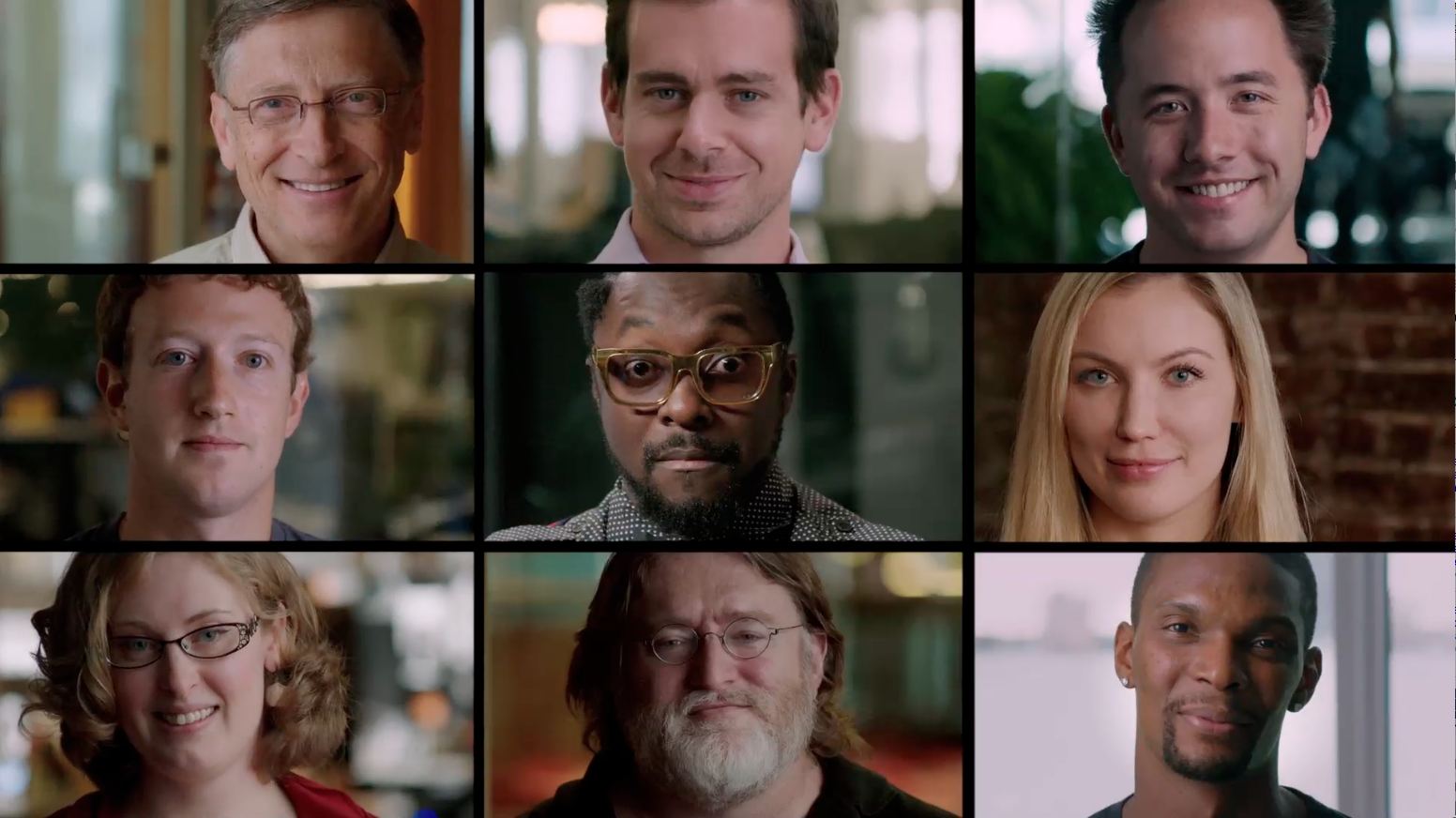
Monday, while on a bumpy plane ride from LA to NY, I completed my first computer coding lesson online at CodeAcademy. I signed up a few months ago when I first started directing a short documentary about kids and coding for Code.org, a new website that aims to help kids (and adults) find computer coding classes near them as well as promote the idea that all kids should have access to a computer programming class at some point during their K-12 education. I would get friendly emails each week letting me know my coding lesson was ready for me.
For a while I was too busy traveling and interviewing famous coders like Bill Gates, Mark Zuckerberg, Jack Dorsey of Twitter and Square and Drew Houston of Dropbox and Gabe Newell at Valve, as well as people who love coding who you would not expect to like will.i.am and Chris Bosh. I met some fabulous women coders like Elena Silenok, who left Wall Street to start Clothia.com, Vanessa Hurst, who thinks that to change the world you might want to learn how to code, and the awesome Bronwen Grimes, a technical artist at Valve games, who perfectly describes that moment of magic I'm told you feel when your program works. Then I was editing, trying to create the right visual animations, and hunting around for the best way to tell a good story about coding. But Sunday I delivered the short film and the trailer for theaters, and I ran out of excuses.
Once the plane hit 10,000 feet I logged on and began my first lesson. In making the film I had set out to bust a lot of the myths and stereotypes that persist about coding. The first being that you have to be a genius to code. So, thankfully, my first lesson didn't start out all that hard. I read about numbers and strings and began typing functions that I'd never typed before. I became curious why the people sitting on either side of me were strangely oblivious to my constant use of semicolons and parentheticals and the pleasure I took when I typed .length to figure out how long a word was. They didn't even notice my giddy reactions when I hit RUN and the prompt would respond and say, "You are correct."
Coincidentally, as the lessons became harder and more interesting the plane ride became bumpier. Sadly, I am one of those people that get airsick but the lesson was going so well for me I did not want this possibility to slow me down. By the time I started section 5 (of 5) I thought I might be getting too airsick to continue. And, yet, I needed to finish! So close! More importantly, I wanted to finish. And if I can complete a lesson, that would mean that anyone can complete a lesson. And so I did. It turns out that what I learned from people while making the documentary actually matched up with reality. Namely:
1. Anyone can learn to code.
2. It's easier than you think.
3. It's no longer just for geeks.
4. Or guys who eat bad food.
5. Completing a program, or in my case, a simple lesson, does feel a little bit like magic.
You can debate the pros and cons of the internet, social media, and modern technology but the bottom line is it's everywhere. So do you help shape it, or are you shaped by it?
Bring a little awesomeness to your life. Take a lesson. And check out my very short documentary on www.code.org.
